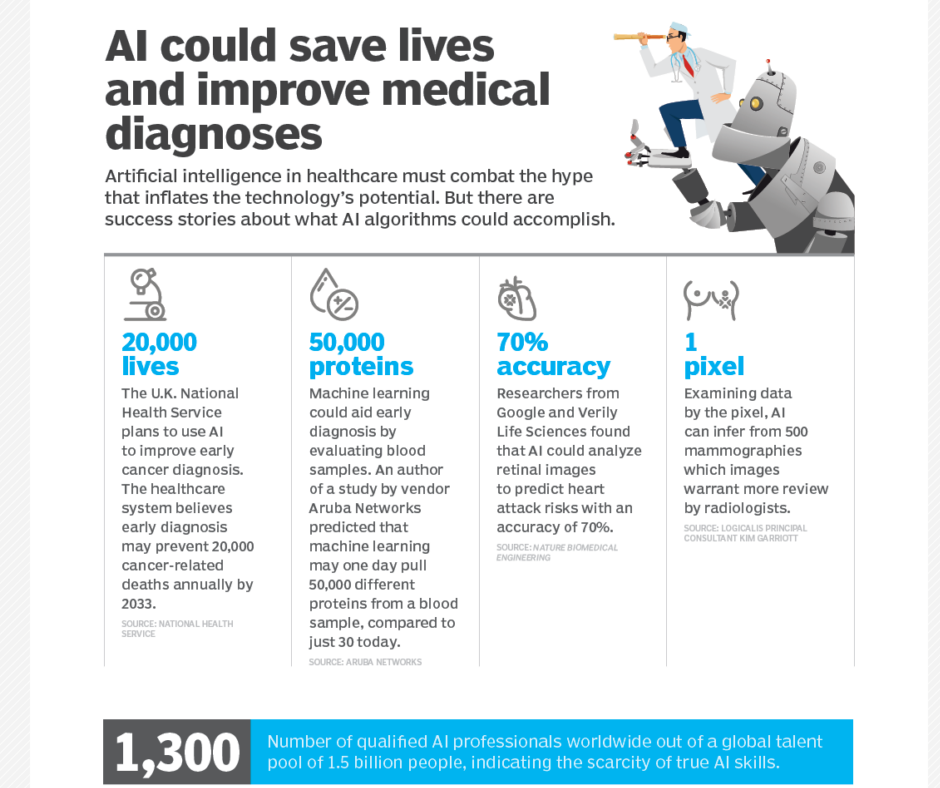
The incorporation of artificial intelligence (AI) in clinical trials, drug discovery, and manufacturing is on the rise, and despite some challenges, pharmaceutical companies are poised to further embrace this technology.
Within the pharmaceutical industry, AI has been applied across drug discovery, manufacturing processes, targeted clinical trials, and personalized healthcare. The integration of AI paves the way for a future characterized by more precise, personalized, and efficient healthcare solutions.
AI’s Contribution to Disease Identification and Advancements in Drug Discovery
The pharmaceutical sector’s extensive access to data opens up numerous possibilities for the application of machine learning and AI. These technologies are proving instrumental in disease identification and drug discovery. Pharmaceutical companies are utilizing AI, coupled with big data and analytics, to enhance diagnostics and therapeutic treatments. The synergy of AI and machine learning with patient data enables the early detection and prevention of illnesses, often outperforming traditional medical practices in identifying early signs of conditions such as diabetes or Alzheimer’s disease.
AI contributes to the optimization of clinical trials by enabling more efficient trial design and participant identification. The use of a broader range of data, including genetic information, social media platforms, patient demographics, and evidence of diseases, streamlines patient recruitment. This results in more targeted, quicker, and cost-effective trials.
The MIT Clinical Machine Learning Group is actively developing algorithms to enhance understanding of disease progression and facilitate innovative treatment strategies, particularly for conditions like Type 2 diabetes. AI’s utilization of patient medical information and history further contributes to the optimization of treatment options.
In the realm of cancer treatment, IBM Watson for Oncology is making strides with augmented treatment solutions. By assessing diverse patient information, including medical records and the latest data from medical journals, the system provides potential treatment options ranked by confidence level. Oncologists can then use an augmented intelligence tool to evaluate suggestions and formulate personalized treatment options for individual patients.
AI’s impact extends to the identification and diagnosis of illnesses, particularly through computer vision systems analyzing radiology images and lab results. This technology distinguishes between healthy and cancerous tissue, contributing to improved radiation treatment accuracy and personalized treatment suggestions, especially when integrated with intelligent electronic health records.

AI Revolutionizes Drug Manufacturing Processes
Drug manufacturing, a traditionally time-intensive and costly process, is benefiting from AI systems. By analyzing data, these systems reduce drug production time and identify opportunities to repurpose existing drugs for initially unintended diseases. The potential of AI in experimentation and manufacturing processes is leading to reduced production times, lower costs, and enhanced replication of drugs.
Pharmaceutical giants like GlaxoSmithKline, AstraZeneca, Pfizer, and Eli Lilly and Company are at the forefront of incorporating AI to streamline drug development. For instance, Eli Lilly is licensing AI technology to facilitate on-demand drug discovery operations, thereby accelerating research activities while reducing costs and environmental impact.
While the adoption of AI in pharmaceutical companies faces regulatory barriers and challenges related to security, patient privacy, and smart system reliability, the industry’s significant access to patient data makes exploring these transformative technologies worthwhile. The potential for advances, cost-savings, and value that AI provides to pharmaceutical companies underscores the importance of continued exploration in this field.




